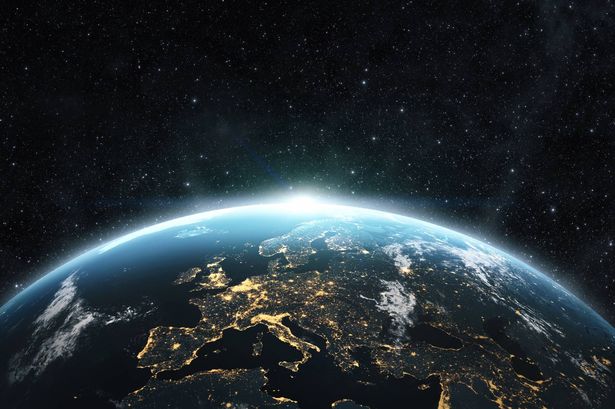Science
Astrophysicist Claims Mathematical Proof of God’s Existence

Dr. Willie Soon, an astrophysicist affiliated with the Harvard-Smithsonian Centre for Astrophysics, has asserted that he has found a mathematical proof for the existence of God. His statement has sparked significant discussion on social media platforms, where audiences have engaged in philosophical debates surrounding his claims. Soon’s theory intertwines scientific principles with theological implications, suggesting that a divine force may be responsible for the universe’s existence.
During a recent interview on The Tucker Carlson Network, Soon elaborated on his beliefs, emphasizing the “fine-tuning argument.” This concept posits that the universe’s physical conditions are so precisely calibrated that they create an environment nearly impossible for life to arise by mere chance. According to Soon, this improbability indicates a deliberate design, aligning with the views of many who seek to reconcile science with faith.
Linking Science and Faith
Soon’s reasoning draws from ideas first proposed by physicist Paul Dirac in 1963. Dirac suggested that the mathematical elegance governing natural laws implies the existence of a supreme architect. He stated, “It seems to be one of the fundamental features of nature that fundamental physical laws are described in terms of mathematical theory of great beauty and power.” Dirac’s assertion that nature’s construction reflects advanced mathematics has led some to conclude that a divine creator is behind the complex universe we inhabit.
Echoing Dirac, Soon remarked, “There are so many examples of the ever-present forces that allow us to illuminate our lives. God has given us this light, to follow the light and do the best that we can.” His argument draws parallels to the well-known analogy of a timepiece: discovering a clock implies a clockmaker, and similarly, the complexity of the cosmos suggests an intelligent creator.
Counterarguments to Fine-Tuning Theory
Notably, Soon’s assertions have not gone unchallenged. Critics argue against the fine-tuning theory on two primary fronts. Firstly, they highlight the limitations of our current understanding of the cosmos. While humans are carbon-based lifeforms, it is possible that alternative forms of life could exist in other universes, potentially governed by different principles.
Secondly, skeptics point to the role of probability. They contend that unlikely events can and do occur frequently in nature. The existence of our universe, despite the slim odds, may simply be one of those improbable occurrences. While Soon’s claims have ignited discussions about the intersection of science and spirituality, the debate is far from resolved.
As the conversation unfolds, Dr. Willie Soon’s work stands as a striking example of how the realms of science and belief can engage in dialogue, challenging individuals to reconsider their perspectives on existence and the universe’s origins.
-

 Entertainment2 months ago
Entertainment2 months agoIconic 90s TV Show House Hits Market for £1.1 Million
-

 Lifestyle4 months ago
Lifestyle4 months agoMilk Bank Urges Mothers to Donate for Premature Babies’ Health
-

 Sports3 months ago
Sports3 months agoAlessia Russo Signs Long-Term Deal with Arsenal Ahead of WSL Season
-

 Lifestyle4 months ago
Lifestyle4 months agoShoppers Flock to Discounted Neck Pillow on Amazon for Travel Comfort
-

 Politics4 months ago
Politics4 months agoMuseums Body Critiques EHRC Proposals on Gender Facilities
-

 Business4 months ago
Business4 months agoTrump Visits Europe: Business, Politics, or Leisure?
-

 Lifestyle4 months ago
Lifestyle4 months agoJapanese Teen Sorato Shimizu Breaks U18 100m Record in 10 Seconds
-

 Politics4 months ago
Politics4 months agoCouple Shares Inspiring Love Story Defying Height Stereotypes
-

 World4 months ago
World4 months agoAnglian Water Raises Concerns Over Proposed AI Data Centre
-

 Sports4 months ago
Sports4 months agoBournemouth Dominates Everton with 3-0 Victory in Premier League Summer Series
-

 World4 months ago
World4 months agoWreckage of Missing Russian Passenger Plane Discovered in Flames
-

 Lifestyle4 months ago
Lifestyle4 months agoShoppers Rave About Roman’s £42 Midi Dress, Calling It ‘Elegant’









